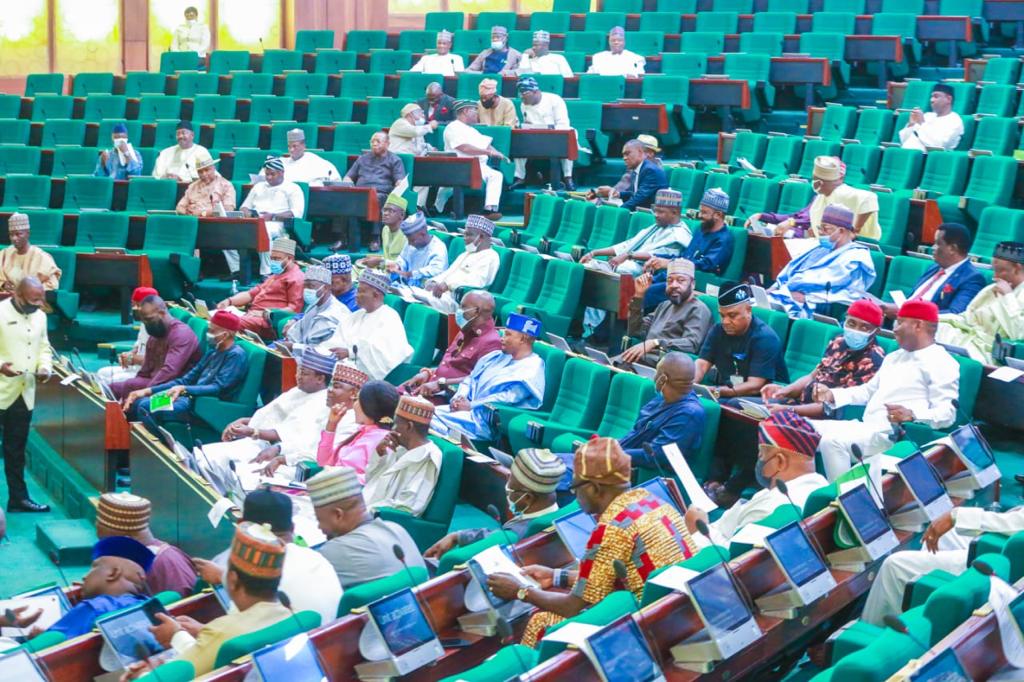Reps Investigate N1.12tr Agric Loans
•By Admin
ABUJA – The House of Representatives Committee on Nutrition and Food Security has launched an investigation into the N1.12 trillion expended under the Anchor Borrowers Programme (ABP).
The Committee is also scrutinizing the NIRSAL Microfinance Bank over the disbursement of N215 billion for agricultural enterprises, in addition to probing the Bank of Industry over the distribution of N3 billion to 22,120 smallholder farmers through the Agricultural Value Chain Financing Programme.
Chairman of the Committee, Hon. Chike Okafor, raised alarm during an investigative hearing over alleged mismanagement of government agricultural interventions and funding across various ministries, departments, agencies, and schemes.
He noted with concern that out of the 24 Participating Financial Institutions (PFIs) involved in disbursing the ABP funds, there was verified documentation from only nine institutions.
“One of our major oversight responsibilities is to ensure that intervention programmes implemented by relevant government bodies related to food security and nutrition are properly executed,” he stated.
Okafor continued: “We are examining how the Central Bank of Nigeria disbursed N1.12 trillion to 4.67 million farmers engaged in cultivating rice, maize, and wheat through 563 anchor companies under the ABP.
“The CBN should be aware that while 24 PFIs were involved in disbursing these enormous sums, we only have documentary evidence from nine of them. We understand that letters were sent to all 24 institutions, but only a few have responded appropriately. Some have reportedly tried to reach out.”
He added, “Additionally, we are investigating how NIRSAL disbursed N215.06 billion to support agriculture and agri-businesses, and how the Bank of Industry disbursed N3 billion to over 22,000 smallholder farmers under the agriculture value chain financing initiative.
“The Committee’s oversight covers monitoring implementation, tracking resource allocations, proposing new legislation, and strengthening existing laws on matters concerning nutrition and food security.”
He emphasized that food security and nutrition are interlinked issues that are central to the ‘Renewed Hope Agenda’ of the current administration.
“The establishment of this committee is a legislative response to collaborate with the executive and relevant stakeholders to combat food insecurity and malnutrition in Nigeria,” he said.
Representing NIRSAL Microfinance Bank, Charles Bassey explained that security challenges significantly impacted the success of their loan initiatives.
He noted that in determining eligible beneficiaries, the bank strictly adhered to set guidelines.
“Based on those criteria, we released the funds. However, several challenges were encountered. Many beneficiaries could not return to their farms due to insecurity, including banditry and herdsmen attacks, which disrupted farming activities and harvests. Others faced natural disasters such as flooding and drought. Some have even requested loan restructuring to enable them repay appropriately,” Bassey explained.
On its part, Sterling Bank’s Group Head of Agric Finance and Solid Minerals, Olushola Obikanye, said the bank had fully returned N113.49 billion to the Central Bank of Nigeria and had no outstanding liabilities under the scheme.
“The total amount refunded to the CBN, including both undisbursed and repaid disbursed funds, stands at N113,490,756,332.54. Therefore, Sterling Bank no longer owes anything under this programme,” Obikanye affirmed.
•INDEPENDENTNG.

